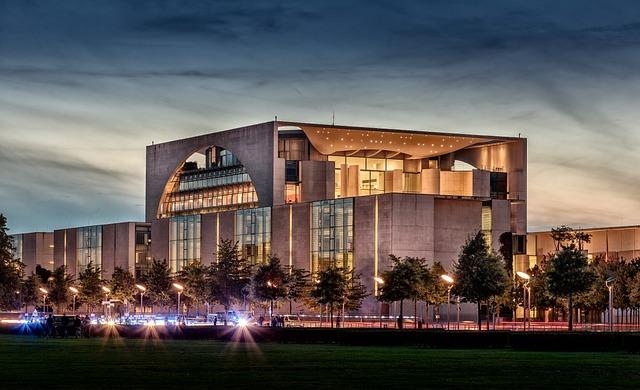In a landmark progress for human rights in Angola,five government critics were released after enduring more than a year of arbitrary imprisonment,a situation that has drawn international condemnation and scrutiny. The release, reported by Amnesty International, marks a notable moment in the ongoing struggle for freedom of expression and political dissent in the southern African nation. Detained under controversial circumstances, these individuals exemplified the broader challenges faced by activists and journalists in Angola, where dissent is often met with harsh reprisals. This article delves into the circumstances surrounding their imprisonment, the implications of their release, and the continued fight for human rights and democratic governance in Angola.
Government Response to Criticism in Angola
In response to mounting criticism regarding the treatment of dissenters, the Angolan government has made several statements asserting its commitment to uphold human rights while addressing demands for political reform. Critics of the government have long claimed that authorities resort to arbitrary imprisonment to silence opposition voices. The recent release of five government critics has led to a mix of relief and skepticism among human rights organizations and citizens alike. Authorities maintain that the detentions were necessary for maintaining public order, tho many argue that such measures suppress fundamental freedoms.
The government has stated that it is indeed open to dialog with civil society and is willing to consider reforms aimed at improving the political landscape. Among the measures discussed include:
- Establishing a national dialogue platform to facilitate discussions between the government and opposition groups.
- Enhancing judicial independence to ensure fair trial guarantees for all individuals.
- Implementing legal reforms to decriminalize peaceful dissent and protect freedom of expression.
Despite these intentions, skepticism remains prevalent among activists and international observers, who call for tangible actions rather than mere rhetoric. The international community is watching closely, emphasizing the need for constructive engagement and meaningful reforms to ensure that the rights of all citizens in Angola are respected and upheld.

Impact of Arbitrary Imprisonment on Civil Society
The release of five government critics in Angola highlights the profound implications that arbitrary imprisonment has on civil society. Such detentions stifle not only individual rights but also weaken the very fabric of democratic engagement. When voices of dissent are silenced, the result is a chilling effect that discourages citizens from expressing their opinions or challenging governmental injustices. This creates a culture of fear, where individuals may choose to remain silent rather than face potential reprisals for speaking out, leading to a homogenization of thought and a weakening of public discourse.
Moreover, arbitrary imprisonment can lead to a civil society that is less vibrant and resilient, with significant repercussions for social justice and accountability. It suppresses activism and diminishes the capacity of organizations to advocate for change, often convincing potential advocates that their efforts are futile. The absence of dissenting voices removes vital checks on power, consequently hindering government accountability. Consequently,the population may become increasingly disengaged,manifesting in a lack of trust toward governmental institutions and a stagnation of democratic processes.

Analysis of Legal Framework Surrounding Freedom of Expression
The legal framework governing freedom of expression in Angola has been tightly controlled, reflecting broader patterns of repression against dissenting voices. Despite the constitutional guarantee of freedom of speech, numerous laws, such as the 2015 Law on the Press, inhibit journalistic practice and perpetuate censorship. Under this law,media outlets face significant challenges,including hefty fines for non-compliance and stringent regulations on content deemed harmful to national security or public order. Key factors undermining freedom of expression include:
- Vague Legal Provisions: Many laws include ambiguous terms that allow for broad interpretation and selective enforcement against dissenters.
- Criminalization of Defamation: Defamation laws are used to silence critics,leading to self-censorship among journalists and activists.
- Restrictions on Digital Media: Recent efforts to regulate social media platforms further limit the public’s ability to engage in free expression online.
The recent release of five government critics, who endured more than a year of arbitrary imprisonment, underscores the urgent need for legal reform. This case reflects a systemic pattern where the state utilizes both formal legislation and extra-legal pressures to suppress free speech.To foster a healthier surroundings for freedom of expression, the following steps are essential:
- Amending Existing Laws: Revising repressive laws to align with international human rights standards can create a more conducive environment for open dialogue.
- Protecting Journalists and Activists: Establishing legal protections for those exercising free speech would help safeguard against harassment and violence.
- Encouraging Civil Society engagement: Promoting civic engagement and public discourse can cultivate a culture where diverse viewpoints are respected and heard.

Role of International organizations in Advocating for Human Rights
International organizations play a pivotal role in the global advocacy for human rights, serving as watchdogs and platforms for raising awareness about abuses and injustices. Through rigorous research and reporting, these entities shine a light on the plight of individuals such as those imprisoned in Angola. By employing tools such as public campaigns, diplomatic engagement, and legal pressure, organizations like Amnesty International mobilize support and hold governments accountable for their actions. Their efforts frequently enough inspire grassroots movements and serve to galvanize local and international communities around the cause of human rights.
The impact of international advocacy is especially evident in cases where dissent is met with severe repression. When rights activists are silenced,organizations can swiftly rally global opinion against such injustices. Key strategies include:
- documentation of Violations: Accurately recording incidents of abuse to build a complete understanding of the situation.
- Public Awareness Campaigns: Utilizing media and publications to inform the public and policymakers about violations.
- Legal Support: Assisting in legal actions that challenge unjust detentions and promote due process.
The collaborative efforts of international organizations foster a climate of accountability, urging governments to reflect on their practices. Further, by establishing coalitions and partnerships with local entities, they ensure that the voices of affected individuals are heard and included in the narrative. Below is a concise overview of the organizations involved in advocating for the human rights of individuals like those released in Angola:
| Association | Focus Area | Recent Action |
|---|---|---|
| Amnesty International | Global Human Rights | Advocacy for imprisoned critics |
| Human Rights Watch | Monitor Abuses | Reports on Angola’s political landscape |
| International Federation for Human Rights | Support Local Activists | Collaboration with local ngos |

Recommendations for strengthening Democratic Freedoms in Angola
To foster a climate conducive to democratic engagement, it is indeed essential that Angola’s government takes concrete steps towards enhancing civil liberties and reducing state control over dissent. Key recommendations include:
- Strengthening Media Freedom: Foster an self-reliant media environment that allows for diverse opinions, free from censorship or intimidation.
- Protecting Human Rights Defenders: Ensure the safety and operational freedom of activists and NGOs, providing them with the legal frameworks to operate without fear of reprisals.
- Reforming Judicial Independence: Revamp the judicial system to eliminate political influence and ensure fair trials for all individuals, especially for those accused of politically motivated crimes.
- Engaging in Dialogue: Encourage open discussions between the government and civil society to address grievances and promote collaborative solutions for the countryﻗs challenges.
Moreover, international cooperation can play a pivotal role in supporting Angola’s journey towards a more democratic system. The following actions should be prioritized:
| Action | Description | Expected Outcome |
|---|---|---|
| Pressure for Policy Changes | Encourage the international community to apply diplomatic pressure on Angola to respect human rights. | Improved compliance with international human rights standards. |
| Supporting Local Initiatives | fund and empower local organizations working towards clarity and civic engagement. | Enhanced grassroots movements advocating for democratic reforms. |
| Monitoring Elections | Deploy international observers during elections to ensure free and fair processes. | Increased public confidence in electoral integrity. |
Concluding Remarks
the release of the five government critics in Angola marks a significant moment in the ongoing struggle for human rights and freedom of expression in the country. Their lengthy imprisonmentﻗcharacterized by allegations of arbitrary detentionﻗhas drawn international condemnation and raised urgent questions about the state of civil liberties under the Angolan government. While this development offers a glimmer of hope for activists and advocates, it also underscores the persistent challenges that remain in the pursuit of justice and accountability. As Angola navigates its complex political landscape, the global community will be watching closely, urging reforms and advocating for the protection of all individuals who dare to voice dissent against authority. The fight for human rights in Angola is far from over, and the recent releases serve as a reminder of the resilience of those who continue to champion democratic principles and uphold the values of free expression.







